Meet the Bangladesh Wheelchair Cricket Team
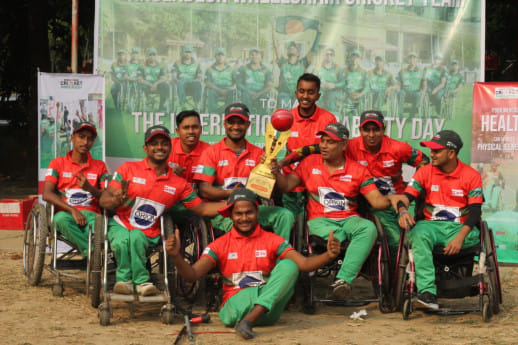
In the heart of Bangladesh, where cricket pulses through every lane and schoolyard, there is another league of players who redefine what it means to wear the national colours. Their bats may not swing with the same media frenzy, and their matches rarely see full stadiums. But their stories? They are the kind that rearrange your notions of strength. These are the warriors of the Bangladesh Wheelchair Cricket Team. And they play for dignity!
The captain who dreamed
When Mohammad Mohasin was just six months old, polio robbed him of the ability to walk, but it could never take away his love for sports.
"In the late '90s, after Bangladesh's win in the ICC Trophy, cricket fever swept the nation. I'd crawl onto fields near my home, trying to join the boys. Sometimes, I was mocked, left behind. It hurt. I used to wonder — what if people like me had our own team?" he recalls.
That dream turned into action in 2010, after Mohasin posted a photo of himself playing cricket in a wheelchair. Mohasin was asked if Bangladesh had a team for physically challenged cricketers. "We don't," Mohasin replied. "But we will."
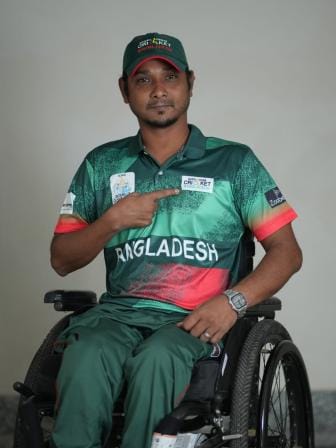
He began emailing, calling, and campaigning. Then came a bold move: a wheelchair journey from Teknaf to Tetulia, to raise awareness about mobility rights. It made headlines. And slowly, people started to listen.
"We're proving that disability is not a limitation – society's mindset is," says Mohasin. "Disability is not our barrier. Society is."
The road remains steep. Mohasin shares stories of being mistaken for a beggar, of strangers pressing coins into his hand. "People ask if my wife is also like me. Or if my children are normal. There's so little awareness."
While the Disability Rights Act of 2007 exists, Mohasin says implementation is weak. "Even new buildings ignore basic accessibility. It's not about ramps. It's about mindset."
The all-rounder who fought for a field
Md Rajon Hossain's voice is calm, but his words strike deep. "People think we need to be pushed. They don't know we play cricket in wheelchairs."
Polio altered Hossain's life at age two, leaving him with limited sensation from the waist down, but it didn't take away his will. After joining the wheelchair cricket team, he found not just a sport but a brotherhood.
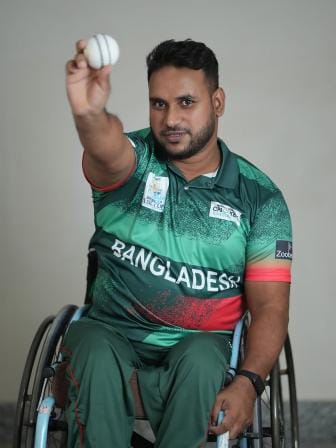
"In Dhaka, we used to train at a concrete court inside Dhaka University. Now, it's inaccessible. We've heard for years that we'll get a dedicated field – like the one near Parliament – but nothing has happened," he states.
Even practising is a logistical nightmare. Most of the team members cannot afford transport, and public buses are hostile. CNG drivers charge extra when they spot a wheelchair. And sponsors are scarce.
Hossain informs, "In India or Nepal, grounds are prepared with trimmed grass for wheelchair games. We practise on fields with weeds and potholes. It slows us down, literally and figuratively."
Hossain runs a small computer business and still makes time for the sport. "We fight on. Not just to play, but to live with dignity."
The vice-captain who rose from the edge
Md Ripon Uddin was 15 when he fell from a rooftop, severing his spinal cord. A fall that could have ended everything, but it did not.
From a wheelchair, Ripon completed his SSC and HSC, scoring a GPA of 5 in HSC — the first in his college's history. "Later, I got a scholarship at a university in Dhaka and completed both BBA and MBA in Finance."
Cricket came into his life in 2015 through Mohasin. "Growing up, there was no space for people like us in sports. Families often treat disabled children as burdens. Disability is seen as a curse."
In 2017, Bangladesh hosted an international wheelchair cricket tournament in Dhaka. Teams from India, Nepal, and Pakistan joined. Bangladesh won. That win gave birth to the International Wheelchair Cricket Council (IWCC), with Mohasin as Secretary General. Since then, divisional tournaments have sparked new hope across the country.
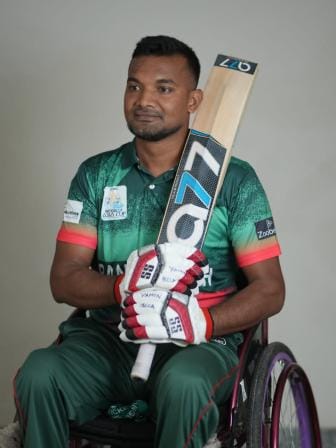
"Some players used crutches or handmade boards to play. They didn't even have wheelchairs," Ripon says. "Now, they represent divisions and carry the flag."
Still, exploitation looms. "Some sponsors treat us like content — good for publicity, bad for investment. Managers eat up funds. Some mimic our initiatives to build their own brands."
But Ripon remains steadfast: "We don't need pity. We need opportunity."
Beyond the field: A fight for visibility
The Bangladesh Wheelchair Cricket Team's struggles mirror those of nearly one crore disabled people in the country. From inaccessible transport to hostile workplaces, the barriers are systemic.
"The Bangladesh Cricket Board has a huge budget. Yet, we have seldom received considerable support," says Mohasin. "If we truly want inclusion, every company, every institution should hire at least one disabled person. That's how you learn what real accessibility looks like."
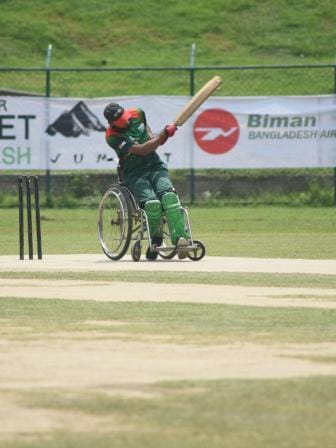
Despite limited resources, the team has worked with organisations like the US Embassy and UNDP. They have organised matches, awareness campaigns, and community outreach – all driven by the players themselves.
Wheelchair cricket in Bangladesh is more than a sport. It's a defiance of limits imposed by society. It is the collective voice of those who have long been pushed to the margins, rising from the silence with the sound of a bat striking a ball. What they deserve is not just the spotlight but a seat at the table and a field that belongs to them just as much as it does to anyone else. Let them roll forward, not as an afterthought but as a force.
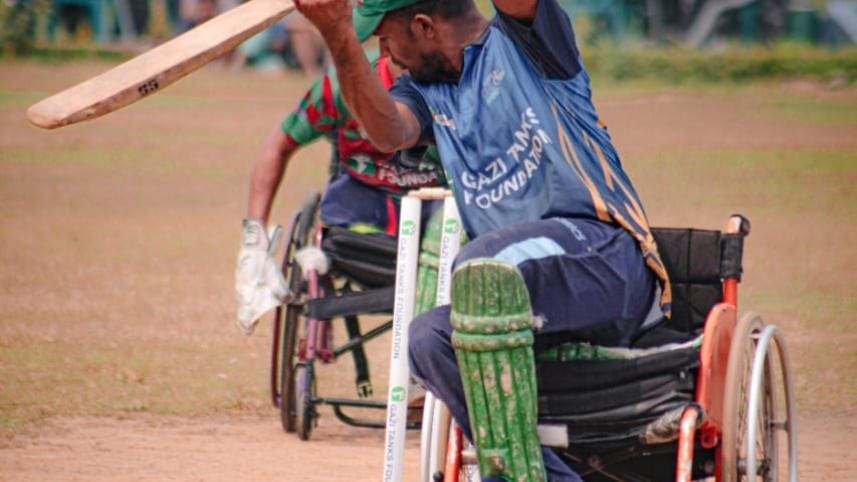
Photos: Courtesy



 For all latest news, follow The Daily Star's Google News channel.
For all latest news, follow The Daily Star's Google News channel. 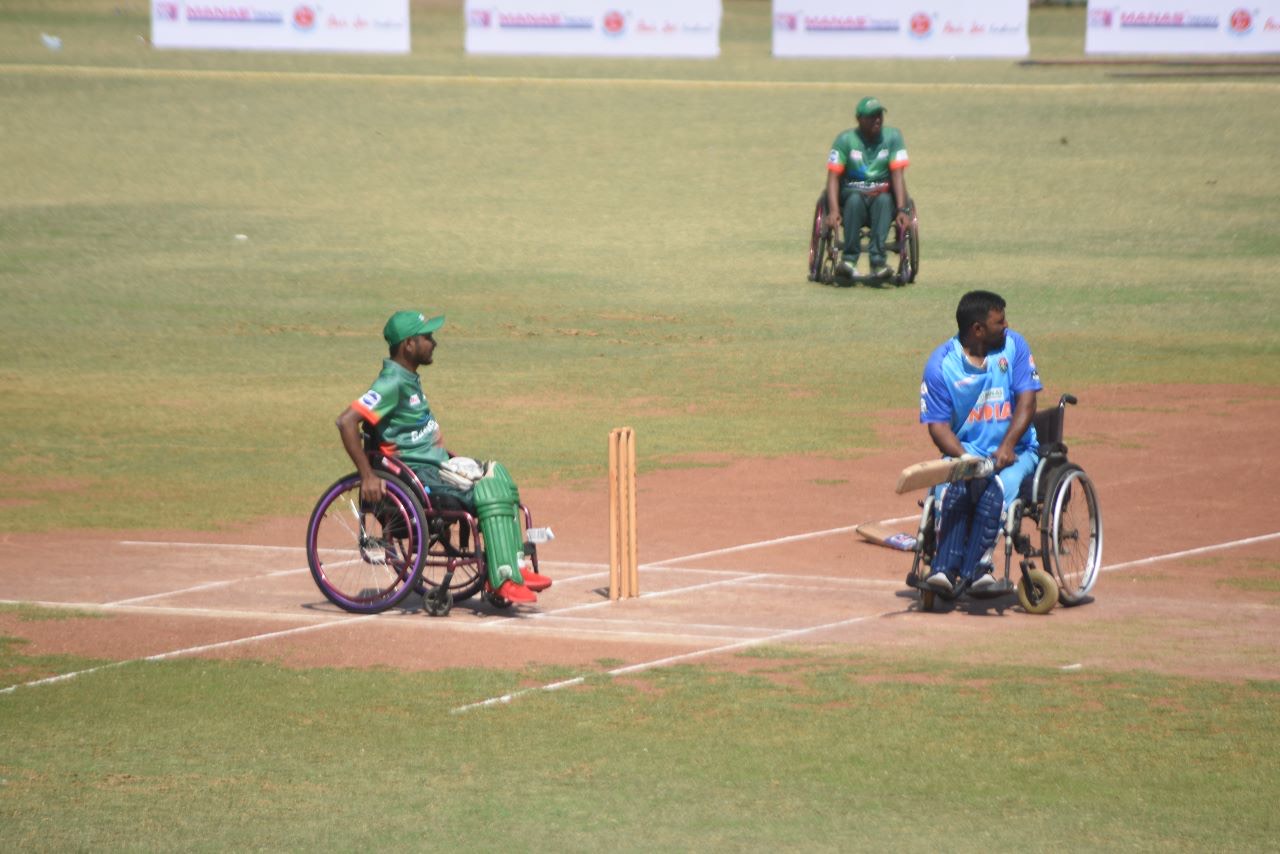
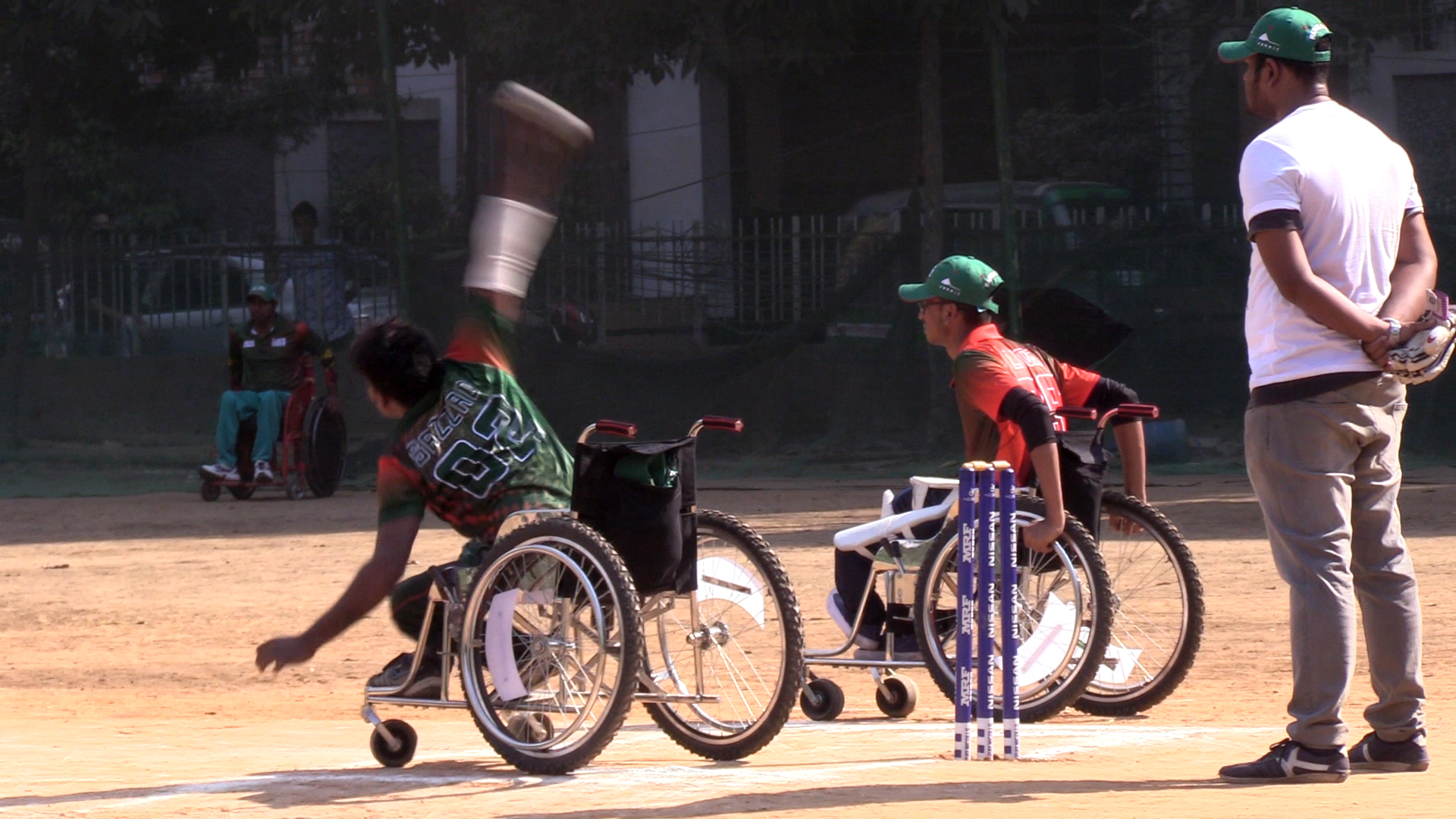
Comments